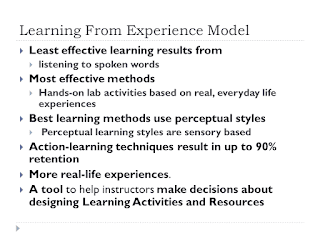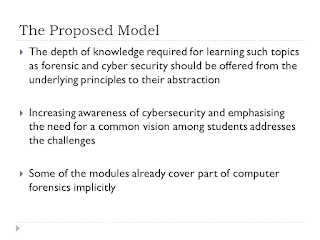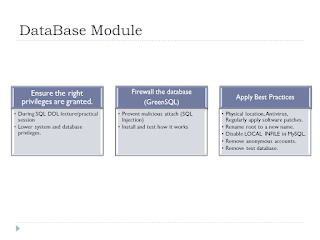An Embedded Pedagogic Model for Computer Forensics within an
Undergraduate Programme
Authors: Ali Al-Sherbaz , Amir Minai, James Xue, Rashmi Dravid , The University of Northampton
Abstract
The discipline of computer forensics which has a strong mutli-disciplinary background derives from the computing subjects in networking, programming, security and mathematics. Increasing awareness of cybersecurity and emphasising the need for a common vision among students addresses the challenges. The proposed pedagogic model is to embed the computer forensics materials within the undergraduate modules to extend students’ knowledge and skills in a practical context. However, it is also recognised that the depth of knowledge required learning such topics as cyber security should be offered from the underlying principles to their abstraction.
Cyber crimes are on the rise however, Cyber security professionals are in a depressingly low numbers. The lack of focus on this area has certainly resulted in a limited number of experts. Today, there is a demanding need to create new cyber security jobs, which should hopefully bring leverage to the uncontrollable rise of cyber crimes. It is, therefore, necessary to develop the analytical skills which create challenges in building a constructive approach to learning. Also, reflecting the technological fluctuations, it is seen as essential for students to be continuously updated.
The proposed model focuses on the delivery and assessment of certain computing modules, with an evaluation of its efficiency on the use of time and effort in order to satisfy the minimum requirements of the curriculum. The study has also discovered that some of the modules already cover part of computer forensics implicitly. Therefore, highlighting these topics to the students and making them more visible as computer forensics is one of the main objectives. Another objective is to enhance the existing computing modules by dedicating certain amount of lecture time on computer forensic related concepts. The model can then be adopted by Universities when considering developing new modules.
Over the last few years there have been large increases in cyber-crimes which have threatened individuals and organisations. To reduce the threat it is imperative that the computing courses within universities increase the level of student awareness by providing them with professional education in computer forensics and cyber-security without the need to create a separate specialised pathway.
For more information contact: Dr Ali Al-Sherbaz (ali.al-sherbaz@northampton.ac.uk)
Computing Courses
BSc and HND Computing Provision (click on the links below for more details of the courses)
BSc and HND Computing Provision (click on the links below for more details of the courses)
- BSc (Hons) Computing (also available part-time)
- BSc (Hons) Computing (Graphics and Visualisation)
- BSc (Hons) Computing (Internet Technology and Security)
- BSc (Hons) Computing (Mobile Computing)
- BSc (Hons) Computing (Software Engineering)
- BSc (Hons) Computing - One Year Top-Up
- BSc Computer Games Development
- HND Computing (Computer Networks Engineering)
- HND Computing (Computer Systems Engineering)
- HND Computing (Graphics and Visualisation)
- HND Computing (Internet Technology and Security)
- HND Computing (Mobile Computing)
- HND Computing (Software Engineering)
- HND Computing
The University of Northampton's, Department of Computing and Immersive Technologies offers five courses within the MSc Computing postgraduate provision (shown below) all available either part-time or full-time.
- MSc Computing
- MSc Computing (Internet Technology and Security)
- MSc Computing (Computer Networks Engineering)
- MSc Computing (Software Engineering)
- MSc Computing (Immersive Technologies)
The contents are the opinion of the author(s) and not necessarily the view of the University of Northampton.





















No comments:
Post a Comment